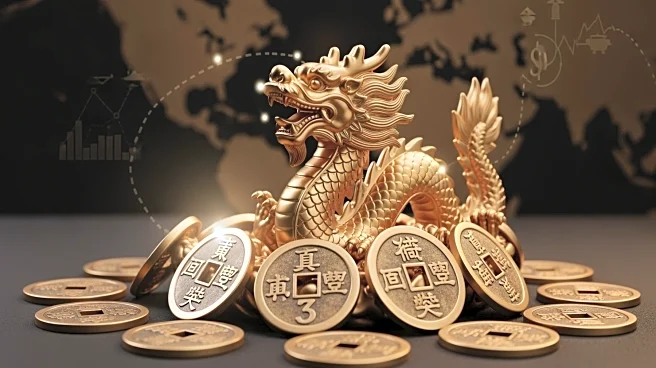What's Happening?
China's economy has grown at its slowest pace in a year during the third quarter, with a reported annual growth rate of 4.8 percent. This slowdown comes as Beijing grapples with the impacts of a global trade war and attempts to bolster its domestic economy.
The Chinese government has set a growth target of about 5 percent for the year, but the trade tensions, particularly with the U.S., have complicated the economic landscape. Exports have been a bright spot, offsetting weak domestic demand, but the reliance on exports is not sustainable. The Chinese leadership is convening to set the national agenda for the next five years, focusing on economic security and high-tech development.
Why It's Important?
The slowdown in China's economic growth has significant implications for global trade and economic stability. As one of the world's largest economies, China's performance affects international markets and trade relations. The ongoing trade war with the U.S. has led to increased tariffs and strained economic ties, impacting industries reliant on Chinese exports. The focus on high-tech development and industrial self-reliance reflects China's strategic shift to bolster national security and reduce dependency on foreign technology. The economic challenges faced by China could influence global economic policies and trade negotiations, particularly with the U.S.
What's Next?
China's leadership is expected to focus on measures to boost consumption and innovation during the Communist Party meeting. The meeting will set priorities for 2026 to 2030, emphasizing economic security and technological advancement. Personnel changes and geopolitical tensions may influence the outcomes of the meeting. President Trump is set to meet with Chinese leader Xi Jinping next week, which could lead to discussions on trade agreements and tariffs. The potential for a deal on Chinese purchases of U.S. soybeans and other goods remains uncertain, with ongoing negotiations likely to impact future trade relations.

















